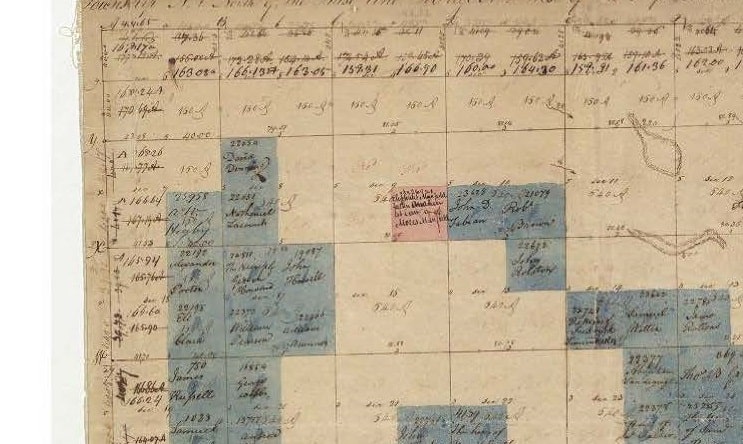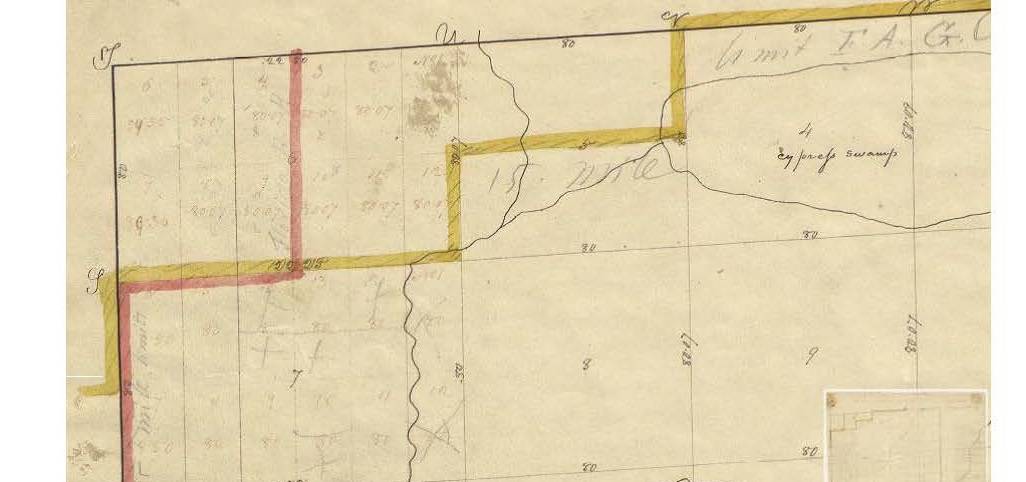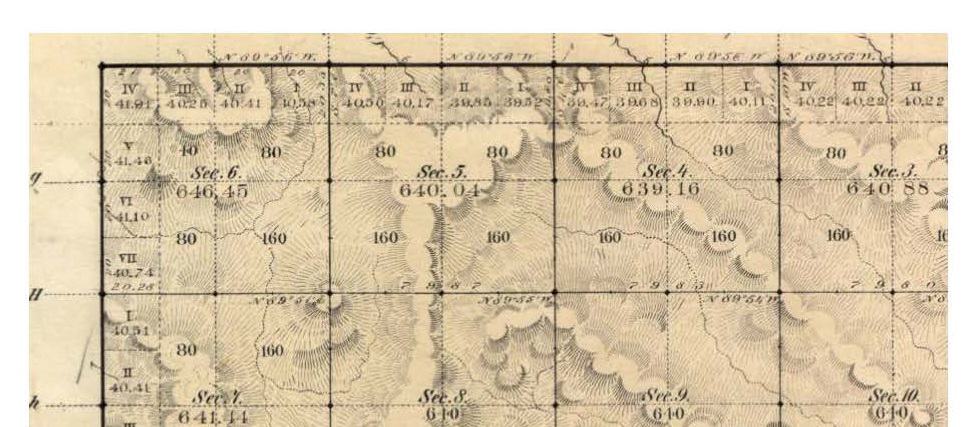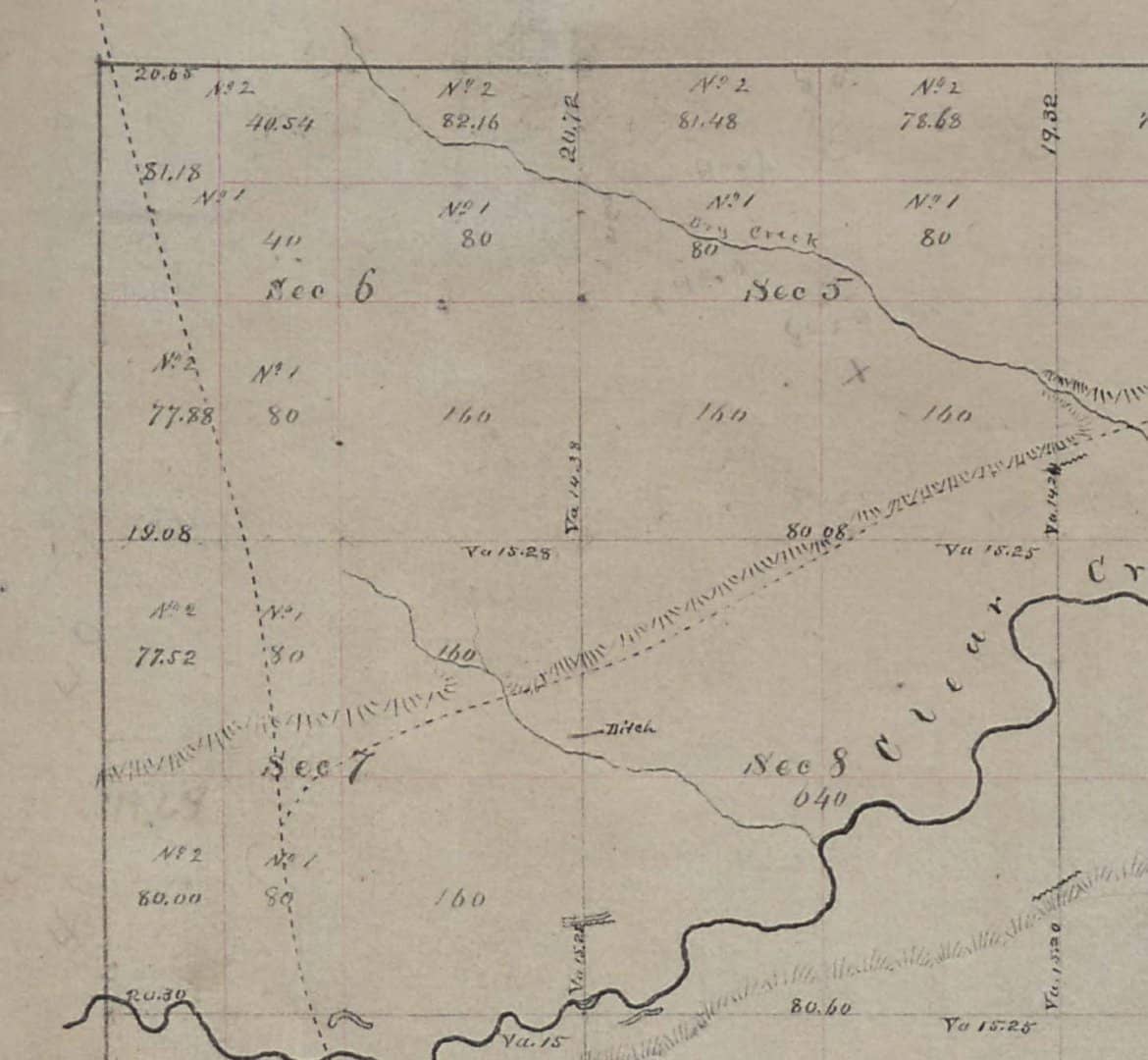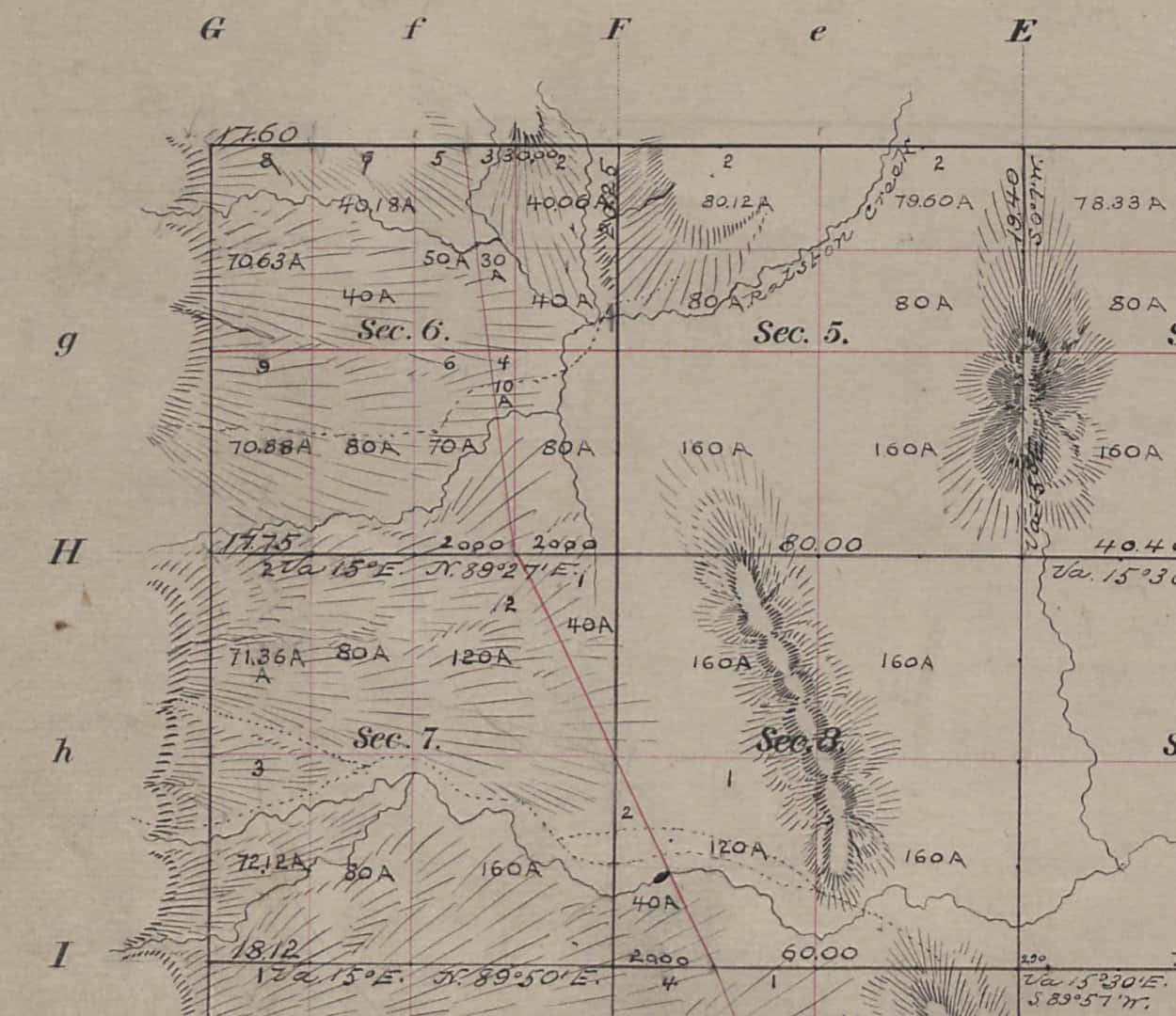I am trying to study for my state exam and I've been getting some mixed information on how far north of the East quarter corner of section 6 would the 8th corner be. Would it be the standard 20 chains and then the excess or deficiency from the eight Corner North, or would it be a prorated distance between the East quarter corner and the Northeast section corner.
[MEDIA=youtube]VkuKvdIv-bE[/MEDIA]
Good video about section 6 breakdown.
The 2009 Manual indicates on Page 65, Figure 3-40 that the NEE/16 corner in Section 6 would create a standard S/2 of the NE/4 with excess or deficiency being contained north of that corner in Lot 1.
paden cash, post: 424374, member: 20 wrote: The 2009 Manual indicates on Page 65, Figure 3-40 that the NEE/16 corner in Section 6 would create a standard S/2 of the NE/4 with excess or deficiency being contained north of that corner in Lot 1.
Welllll... IF you are performing an ORIGINAL (Federal Authority) Survey of Section 6, and monumenting OR Platting said 1/16th Corner, then yes Chapter III is correct.
IF on the other hand, you are performing a Dependent Resurvey of a Section 6 that did NOT (originally) monument said 16th Corner, then see Chapter V (5-48) Page 137. Unless of course, said 1/16th Corner has been previously established by others.
Loyal
One minor point of order...
Please refrain from the use of the term 'standard', unless of course we are talking about corners on certain parallels....;)
Loyal, post: 424381, member: 228 wrote: Welllll... IF you are performing an ORIGINAL (Federal Authority) Survey of Section 6, and monumenting OR Platting said 1/16th Corner, then yes Chapter III is correct.
IF on the other hand, you are performing a Dependent Resurvey of a Section 6 that did NOT (originally) monument said 16th Corner, then see Chapter V (5-48) Page 137. Unless of course, said 1/16th Corner has been previously established by others.
Loyal
Thank you very much, I hadn't made it to page 137 yet and that is exactly what I was looking for.
I remember reading Clark's on boundaries 20 years ago. Since Texas doesn't really have T&R things, and it went over it (in great detail), I remember thinking, after the explanation about how the Township and then the subsequent sections were laid out, who in their right minds would ever want to survey in Section 6!?!?
Kris Morgan, post: 424386, member: 29 wrote: I remember reading Clark's on boundaries 20 years ago. Since Texas doesn't really have T&R things, and it went over it (in great detail), I remember thinking, after the explanation about how the Township and then the subsequent sections were laid out, who in their right minds would ever want to survey in Section 6!?!?
Only if someone is holding a gun on me...;)
Some can be downright fun. If you view hitting your big toe with a 4 lb. sledge fun.
Geezo....scratching my head at the aversion to working in a section with a few government lots!
Gene Kooper, post: 424431, member: 9850 wrote: Geezo....scratching my head at the aversion to working in a section with a few government lots!
I believe the "newer" sections have advantages over the older ones, the later ones,,,,post 1875 or so cleaned some issues with lots like actually showing them on the plat,,,,some of the old sections look more difficult.
MightyMoe, post: 424433, member: 700 wrote: I believe the "newer" sections have advantages over the older ones, the later ones,,,,post 1875 or so cleaned some issues with lots like actually showing them on the plat,,,,some of the old sections look more difficult.
Would you post a couple of examples that illustrate your point?
I enjoy looking at the various treatments of Lot 4 Section 6 by territory and era. Even today i get a good laugh when folks say 'the BLM does it this way'.
Gene Kooper, post: 424437, member: 9850 wrote: Would you post a couple of examples that illustrate your point?
sure:
Old:
not so old:
more the era I'm used too:
point being is that for me I understand how to handle Section 6 on the last plat, the other two,,,,,,,,that would be a struggle
Sorry Moe, I was curious about early surveys in the area(s) you work. In Colorado, the baseline was run in 1859. The early township subdivisions didn't have 7 lots in Sec. 6. These examples are west of Denver.
1862 example.
1867 example with earlier subdivision that created fractional secs. 6 & 7.
1877 example.
Gene Kooper, post: 424536, member: 9850 wrote: Sorry Moe, I was curious about early surveys in the area(s) you work. In Colorado, the baseline was run in 1859. The early township subdivisions didn't have 7 lots in Sec. 6. These examples are west of Denver.
1862 example.
1867 example with earlier subdivision that created fractional secs. 6 & 7.
1877 example.
1876 is as early as they get where ive worked, have to say those look interesting
In Oklahoma all 3 of those examples could very well be the exact same section with the earliest being the only officially accepted survey.
